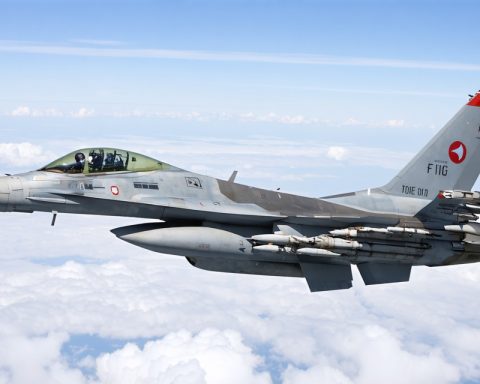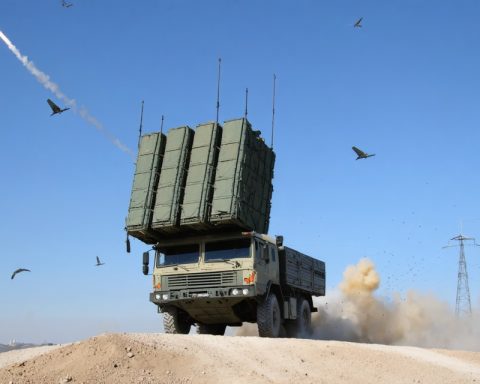Brazil’s President Luiz Inacio Lula da Silva expressed his strong disapproval of the U.S. Department of Justice’s recent request for information regarding Brazil’s acquisition of Gripen fighter jets from Saab in 2014. This announcement, made by Saab, indicated their intention to comply with the U.S. inquiry, although no additional specifics were provided.
In a radio interview, Lula articulated that seeking information from Saab seemed to reflect an unnecessary interference by the United States in Brazil’s internal matters. Lula, who is currently serving his third non-consecutive presidential term, previously led the country from 2003 to 2010. The contract with Saab, valued at approximately $5.4 billion, was finalized under the administration of Dilma Rousseff, a president appointed by Lula.
The Brazilian legal system has been no stranger to controversy over this deal. In 2016, prosecutors filed charges accusing Lula of leveraging his position to sway the competition in favor of Saab. However, Lula’s legal representation denounced these accusations as politically motivated. In a significant turn of events, Brazil’s Supreme Court dismissed the charges in 2022, affirming that the deal adhered to constitutional guidelines and had not faced legitimate challenges from relevant oversight bodies.
This situation highlights the ongoing complexities of international military contracts and the legal implications that can emerge from them.
The Aftermath of Brazil’s Gripen Fighter Jet Deal: A Reflection on Sovereignty and International Relations
The recent tensions surrounding Brazil’s Gripen fighter jet deal with Saab reveal much about the intricate relationship between national sovereignty, international diplomacy, and defense procurement. The U.S. Department of Justice’s inquiry into this $5.4 billion contract has sparked significant controversy, raising questions about the influence of foreign powers in Brazil’s domestic affairs.
Impact on Brazil’s Sovereignty
Brazilian President Luiz Inacio Lula da Silva’s vehement opposition to the U.S. request underscores a vital issue: sovereignty. Lula perceives this inquiry as a blatant interference in Brazil’s internal issues, a sentiment that resonates deeply within a nation striving for autonomy in its foreign dealings. Historically, Latin American nations have fought to assert their independence from external influences, especially from the United States, which has often played a hegemonic role in the region.
The Gripen deal, finalized during Dilma Rousseff’s presidency in 2014, exemplifies Brazil’s commitment to modernizing its air force through international partnerships. However, with external scrutiny now looming, this modernization effort is overshadowed by fears of political and legal ramifications. Communities within Brazil are left to ponder whether their government can adequately defend its interests in the global arena without succumbing to external pressures.
Legal Controversies and Political Ramifications
The legal battles surrounding the Gripen deal are far from over. In 2016, allegations emerged suggesting that Lula improperly influenced the bidding process to favor Saab. These accusations were met with fierce resistance from Lula’s legal team, who have consistently called the claims politically motivated. The dismissal of these charges by the Brazilian Supreme Court in 2022 marked a significant victory for Lula, reinforcing the legality of the deal and freeing it from clouded allegations. Yet, the shadows of these controversies linger, affecting the public perception of both Lula and Saab.
Moreover, the ongoing investigation by the U.S. Department of Justice fuels speculation and debate within Brazil. It raises critical questions about transparency, accountability, and governance, particularly in military procurement processes. The stakes are high for communities dependent on defense contracts for local economies, who may suffer setbacks due to international disputes.
Interesting Facts and the Way Forward
1. Historical Context: Brazil has a long history of military cooperation with foreign nations, notably the U.S. However, this relationship has been fraught with complications, including allegations of corruption and favoritism in defense contracting.
2. Technological Advancement: The Gripen fighter jets are considered a significant leap in Brazil’s military capabilities, equipped with advanced technology that aligns with modern warfare requirements.
3. Public Opinion: The controversy surrounding the Gripen deal is reflective of a larger public discontent regarding governmental transparency and anti-corruption measures, influencing future electoral dynamics as Brazilians mobilize for accountability.
As Brazil navigates these turbulent waters, the implications of the Gripen deal extend beyond mere procurement; they touch core issues of autonomy, national pride, and the capacity to self-govern in an increasingly interconnected world. The nation must carefully consider its next steps, not only regarding international relationships but also in fostering trust among its citizens.
For more insights on international relations and defense, click here: CNBC.
The article has been updated: 2024-11-03 10:24
Here are some suggested related links:
1. Reuters – A global news organization providing the latest updates on international affairs, including economic and military news.
2. BBC News – A reliable source for news and information about global events, including politics and business developments.
3. Washington Post – A leading American newspaper covering national and international news, with in-depth analysis and commentary.
4. New York Times – Renowned for its comprehensive news coverage, the New York Times provides insights into politics, business, and global relations.
5. Associated Press – A trusted news agency delivering timely and accurate news on a wide range of topics, including military and defense.
6. Forbes – A publication focusing on business news, finance, and economic trends, including defense contracts and international dealings.
7. Defense News – A dedicated source for news and insights on defense policies, military technology, and global defense contracts.
8. Bloomberg – A premium service providing financial news, data, and analysis, including coverage of defense and government contracts.
9. Los Angeles Times – An influential newspaper featuring extensive coverage of national and international news, including political criticism and defense matters.
10. Financial Times – An international business newspaper providing reports on economic developments, including significant defense agreements and government inquiries.
The article has been updated: 2024-11-06 08:00
What are the main concerns raised by Brazilian President Luiz Inácio Lula da Silva regarding the U.S. inquiry into the Gripen jet deal?
Brazilian President Luiz Inácio Lula da Silva has criticized the U.S. inquiry into the Gripen jet deal, expressing concerns that the investigation may be politically motivated and could undermine Brazil’s sovereignty. He argues that the scrutiny is an infringement on Brazil’s rights to conduct defense procurement independently and that it could jeopardize the strategic partnership between Brazil and Sweden in the defense industry. Lula has emphasized the importance of transparent and fair dealings in international arms contracts and called for respect for Brazil’s decisions in its defense strategies.






